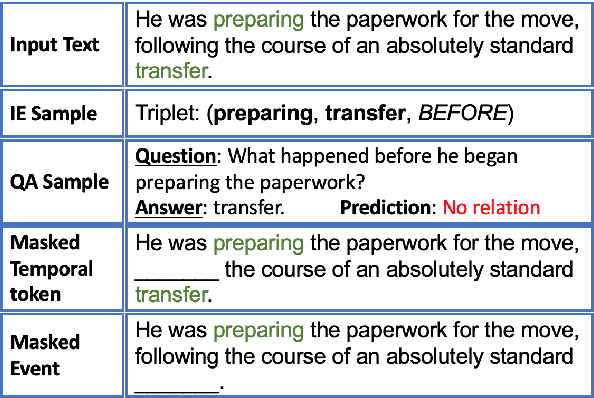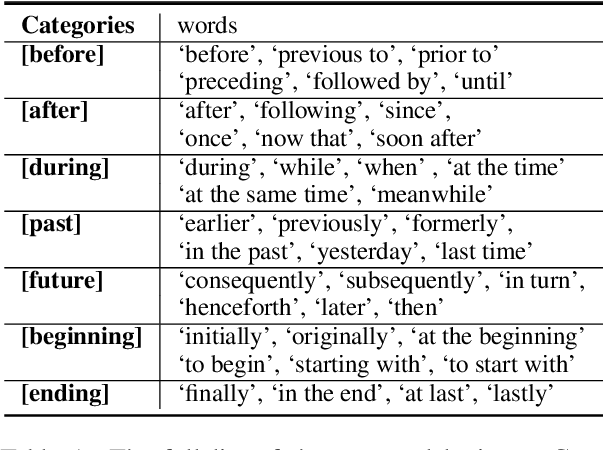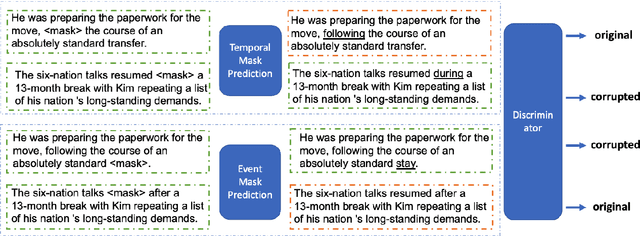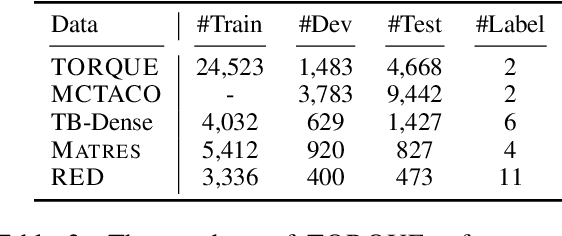DEER: A Data Efficient Language Model for Event Temporal Reasoning
Paper and Code
Dec 30, 2020



Pretrained language models (LMs) such as BERT, RoBERTa, and ELECTRA are effective at improving the performances of a variety of downstream NLP tasks. Recently, researchers have incorporated domain and task-specific knowledge in these LMs' training objectives and further enhanced models' capability of handling downstream tasks. However, none of these LMs are designed specifically for event temporal reasoning. We propose DEER, a language model that is trained to focus on event temporal relations and performs better under low-resource settings than original LMs. More specifically, we create a large number of training samples to simulate the machine reading comprehension and information extraction tasks for event temporal understanding and leverage a generator-discriminator structure to reinforce the LMs' capability of event temporal reasoning. Our experimental results show that DEER can achieve SOTA results and works particularly well in low-resource settings across 5 widely used datasets.
 Add to Chrome
Add to Chrome Add to Firefox
Add to Firefox Add to Edge
Add to Edge